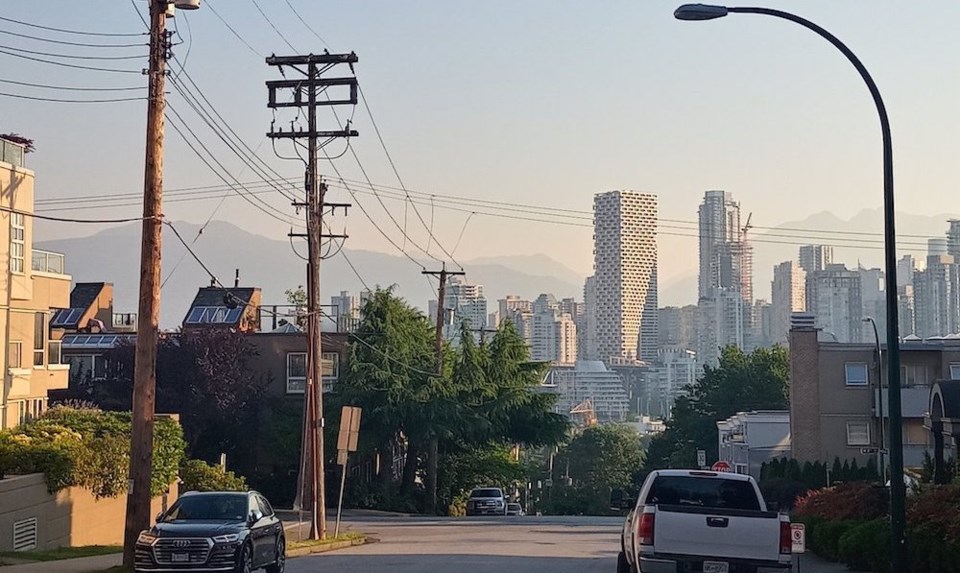Vancouver Coastal Health is warning locals that wildfire smoke may enter the Metro Vancouver region this weekend and is offering several tips on how to stay safe.
In addition to the heat warning issued by Environment Canada, Metro Vancouver is monitoring conditions associated with wildfire smoke from fires burning in the interior of B.C. and Washington, explains a release.
Wildfire smoke models are forecasting that smoke may reach parts of Metro Vancouver on Saturday (July 31) and continue into Sunday. A change in the weather on Monday is forecast to bring onshore winds to help clear the smoke. Smoke concentrations may vary widely across the region as winds and temperatures change, and as wildfire behaviour changes. The public is urged to plan in advance to minimize their exposure to smoky air.
The regional health authority notes that wildfire smoke is different from air pollution caused by traffic or industry but it is also harmful to human health, especially in older adults, infants, young children, pregnant women and people with chronic conditions such as asthma, chronic obstructive pulmonary disease, and heart disease.
Keeping safe
Help keep yourself and your loved ones safe by taking the following steps:
- Reduce time spent outdoors and reduce strenuous activities, because breathing harder means inhaling more smoky air.
- While closing windows and doors can help to keep out smoky air, opening doors and windows can be helpful to cool indoor spaces when it is cooler outside than inside (typically overnight). For most people heat stress is a bigger health risk than smoky air. During hot and smoky conditions, it is recommended to prioritize cooling indoor spaces when possible.
- Confirm you have enough of your medications, especially rescue medications for breathing.
- Create a cleaner air room in your home using a portable HEPA air cleaner if possible.
- Stay hydrated.
- Pay attention to air quality reports, especially the air quality health index.
- Spend time in a home or community space that has air conditioning, which will have cleaner air. Look for designated cleaner air spaces in your community with enhanced air filtration, however, if you can’t find one, most buildings with air -- including the cooling centres established for will have HVAC systems that help people from experiencing irritating symptoms.
People with pre-existing medical conditions should take extra precautions during this time, including monitoring for symptoms and keeping rescue medications with them when outdoors.
Common symptoms can include discomfort when breathing, eye irritation, runny nose, sore throat, headaches, and mild cough. If you experience these symptoms, seek spaces with clean air and reduce physical activity. If you experience more severe symptoms such as shortness of breath, severe cough, dizziness, chest discomfort, heart palpitations, or wheezing, seek medical attention.


